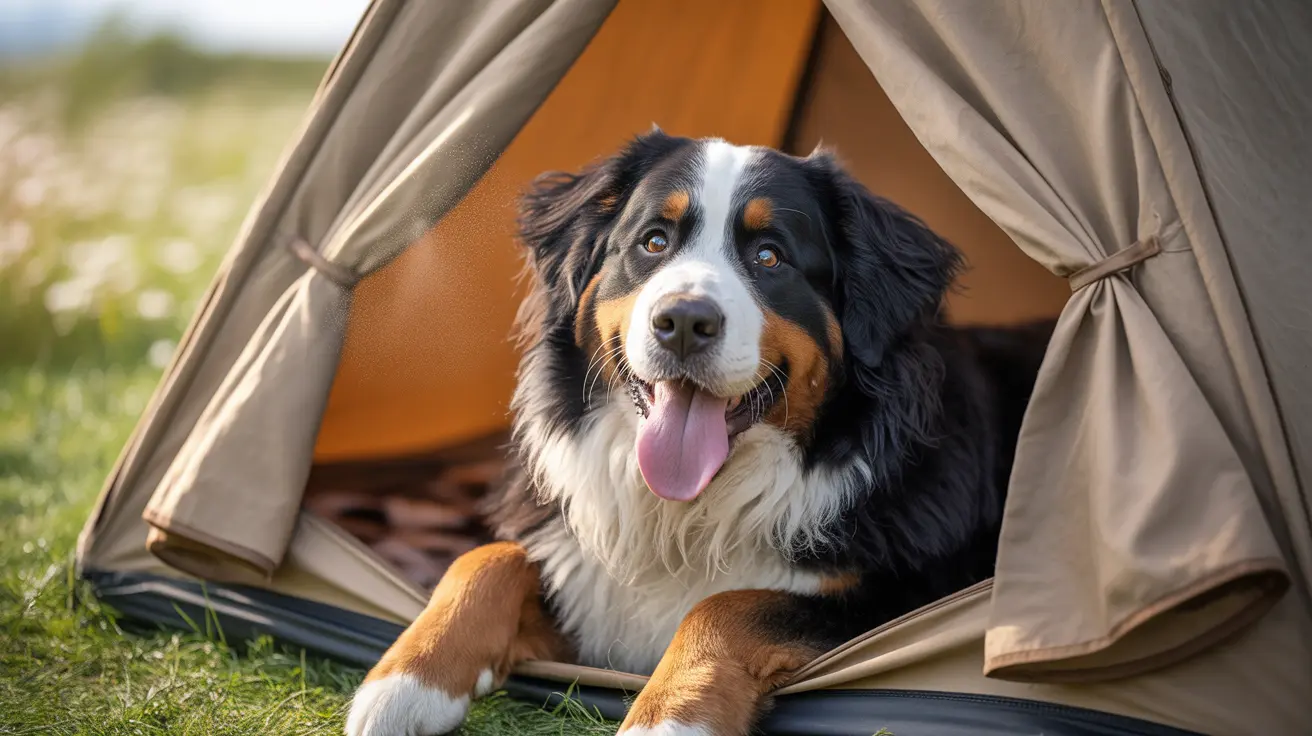When it comes to providing your furry friend with a comfortable resting spot, the choice between a dog tent and a traditional bed can significantly impact their well-being. Each option offers unique benefits that cater to different canine personalities and needs, making it essential to understand which would best suit your pet's specific requirements.
Let's explore the key differences between dog tents and traditional beds to help you make an informed decision for your four-legged companion.
Understanding Dog Tent Benefits
A dog tent provides more than just a place to rest—it creates a secure, den-like environment that many dogs naturally gravitate toward. These enclosed spaces offer a sense of security and privacy that can be particularly beneficial for anxious pets or those who enjoy having their own "territory" within the home.
The structured design of a dog tent often includes features like:
- Soft, cushioned flooring for comfort
- Breathable fabric walls for ventilation
- Portable construction for easy transport
- Washable materials for simple maintenance
Comparing Space and Security Features
While traditional beds offer an open lounging area, dog tents provide a more contained environment that can help reduce stress and anxiety. This enclosed design mimics the natural denning instinct many dogs possess, making it an excellent choice for pets who seek out quiet, covered spaces during rest periods.
The security benefits of a dog tent include:
- Protection from household activity and noise
- A dedicated safe space during stressful situations
- Privacy when needed
- Temperature regulation in drafty areas
Practical Considerations for Dog Tent Use
Before investing in a dog tent, consider your pet's size, behavior patterns, and living environment. Some dogs may prefer the freedom of an open bed, while others will immediately take to the enclosed comfort of a tent structure. The key is observing your dog's natural resting preferences and choosing accordingly.
Important factors to evaluate include:
- Your dog's size and growth potential
- Available space in your home
- Cleaning and maintenance requirements
- Durability needs based on your dog's behavior
Travel and Portability Benefits
One significant advantage of a dog tent is its portability. Many models can be easily folded or collapsed for transport, making them ideal for traveling with your pet. This feature helps maintain consistency in your dog's sleeping environment, whether at home or away.
Frequently Asked Questions
Should I choose a dog bed or a tent for my anxious dog's anxiety relief?
For anxious dogs, a dog tent often provides better anxiety relief than a traditional bed. The enclosed space creates a secure environment that can help reduce stress and provide a sense of safety during overwhelming situations.
Can dog tents protect my pet from household noise and activity better than beds?
Yes, dog tents typically offer superior protection from household noise and activity compared to open beds. The enclosed design helps muffle sounds and creates a visual barrier from busy household activities.
How do I decide between an orthopedic dog bed and a portable tent for traveling?
Consider your dog's primary needs. If joint support is crucial, an orthopedic bed might be better. However, if your dog values security and you travel frequently, a portable tent could be more beneficial. Some products combine both features.
Are dog tents suitable for large breeds or only small to medium-sized dogs?
While many dog tents are designed for small to medium-sized dogs, there are options available for larger breeds. Always check the product's size specifications and weight capacity before purchasing.
What are the best chew-resistant options between dog beds and tents for destructive pets?
For destructive pets, look for dog tents made with reinforced materials and double-stitched seams. Some brands offer specific "tough" or "chew-resistant" versions designed to withstand more aggressive chewers.






